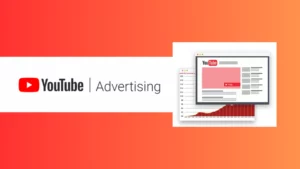Outline of the Article:
- Introduction to digital marketing
- Increased online presence and visibility
- Targeted and personalized marketing
- Cost-effective marketing strategy
- Enhanced customer engagement and interaction
- Data-driven decision making
- Improved conversion rates and sales
- Global reach and expansion opportunities
- Measurable and trackable results
- Integration with traditional marketing methods
- Benefits of digital marketing in the future
- Conclusion of digital marketing
- Summary of digital marketing
- Writing a conclusion for a marketing strategy
- FAQs on digital marketing
Unveiling the Benefits of Digital Marketing
In today’s digital age, businesses are constantly seeking innovative ways to connect with their target audience and stay ahead of the competition. Traditional marketing methods alone are no longer sufficient to achieve sustainable success. This is where digital marketing comes into play, revolutionizing the way businesses promote their products and services. Digital marketing encompasses a wide range of strategies and tactics aimed at leveraging the power of the internet and digital technologies to reach and engage potential customers. In this article, we will explore the various benefits of digital marketing and how it can propel businesses towards success.
Introduction to Digital Marketing
Digital marketing refers to the use of digital channels, such as websites, search engines, social media platforms, email, and mobile applications, to promote products and services. Unlike traditional marketing, which relies on offline advertising methods, digital marketing harnesses the internet’s vast reach to connect with a global audience. It offers businesses the ability to target specific demographics, track user behavior, and measure the effectiveness of marketing campaigns.
Increased Online Presence and Visibility
One of the primary benefits of digital marketing is the opportunity to establish and enhance a brand’s online presence. With the majority of consumers turning to the internet to search for information and make purchase decisions, having a strong online presence is crucial. Digital marketing techniques, such as search engine optimization (SEO) and content marketing, can help businesses improve their website’s visibility in search engine results pages. By ranking higher in search results, businesses can attract more organic traffic and increase their chances of converting visitors into customers.
Targeted and Personalized Marketing
Digital marketing allows businesses to target their marketing efforts towards specific audiences. By leveraging data analytics and customer insights, businesses can create personalized marketing campaigns tailored to the preferences and needs of their target customers. This level of customization not only improves the relevance of marketing messages but also enhances customer engagement and drives conversion rates. With digital marketing, businesses can deliver the right message to the right audience at the right time, maximizing the effectiveness of their marketing efforts.
Cost-Effective Marketing Strategy
Compared to traditional marketing methods, digital marketing offers a more cost-effective solution for businesses, especially for small and medium-sized enterprises (SMEs) with limited budgets. Digital marketing allows businesses to reach a wider audience at a fraction of the cost of traditional advertising channels, such as print media or television. Social media platforms, for example, provide businesses with an affordable means to connect with potential customers and build brand awareness. Additionally, digital marketing campaigns can be easily adjusted and optimized based on performance data, ensuring that businesses get the most out of their marketing budget.
read more: Marketing Ebooks: 10 Powerful Resources to Master the Game
Enhanced Customer Engagement and Interaction
Digital marketing provides businesses with numerous avenues to engage and interact with their customers. Social media platforms, online forums, and live chat support enable businesses to establish direct lines of communication with their audience, fostering meaningful relationships. By actively engaging with customers, businesses can gain valuable feedback, address concerns, and build trust. Such interactions not only improve customer satisfaction but also contribute to brand loyalty and advocacy.
Data-Driven Decision Making
One of the most significant advantages of digital marketing is the wealth of data it generates. Every click, view, and interaction can be tracked and analyzed, providing businesses with valuable insights into customer behavior and preferences. By leveraging data analytics tools, businesses can make data-driven decisions, optimize marketing strategies, and identify opportunities for growth. This analytical approach allows businesses to refine their marketing campaigns continuously, ensuring that resources are allocated to the most effective channels and tactics.
Improved Conversion Rates and Sales
Digital marketing offers businesses the ability to optimize their conversion funnels and increase their conversion rates. By employing strategies such as search engine optimization, pay-per-click advertising, and compelling landing pages, businesses can drive targeted traffic to their websites and encourage visitors to take desired actions, such as making a purchase or filling out a contact form. With continuous optimization and testing, businesses can identify bottlenecks in the conversion process and implement improvements, leading to higher conversion rates and increased sales.
Global Reach and Expansion Opportunities
Unlike traditional marketing, which is often limited by geographical boundaries, digital marketing allows businesses to reach a global audience. The internet has made it possible for businesses of all sizes to expand their reach beyond their local markets and tap into international markets. Through digital marketing channels, businesses can target specific regions or countries, adapt marketing messages to local cultures, and establish a global presence. This global reach opens up new growth opportunities and revenue streams for businesses.
Measurable and Trackable Results
Digital marketing provides businesses with the ability to measure and track the performance of their marketing campaigns in real-time. Unlike traditional marketing, where it is challenging to determine the exact impact of each advertising medium, digital marketing offers comprehensive analytics and reporting tools. Businesses can track metrics such as website traffic, conversion rates, click-through rates, and customer engagement to assess the success of their campaigns. This data-driven approach allows businesses to make informed decisions and allocate resources to the most effective marketing channels and strategies.
Integration with Traditional Marketing Methods
Digital marketing does not replace traditional marketing methods but complements them. By integrating digital and traditional marketing approaches, businesses can create cohesive and holistic marketing campaigns that maximize their reach and impact. For example, businesses can combine online advertising with print media or use digital platforms to promote events and offline experiences. This integration ensures that businesses maintain a consistent brand image across different channels and leverage the strengths of each medium to reach a broader audience.
Benefits of Digital Marketing in the Future
The future of digital marketing holds immense potential for businesses. As technology continues to advance, new opportunities will emerge, enabling businesses to engage with their audience in even more innovative ways. The rise of artificial intelligence, voice search, augmented reality, and virtual reality presents exciting possibilities for digital marketers. These technologies can enhance personalization, create immersive brand experiences, and revolutionize the way businesses interact with customers. Embracing these advancements will be crucial for businesses looking to stay ahead in the digital landscape.
Recommended Reads for Digital Marketers
Looking to dive deeper into the world of digital marketing? Expand your knowledge and gain insights from these recommended books:
Conclusion of Digital Marketing
In conclusion, digital marketing offers numerous benefits that can empower businesses to thrive in the digital age. From increased online presence and targeted marketing to cost-effectiveness and improved customer engagement, digital marketing has become a key strategy for success. By leveraging the power of the internet and digital technologies, businesses can connect with their target audience, drive conversions, and achieve sustainable growth. Embracing digital marketing and staying abreast of emerging trends and technologies will be essential for businesses aiming to maintain a competitive edge in the ever-evolving digital landscape.
Summary of Digital Marketing
Digital marketing is a comprehensive approach to promoting products and services using digital channels. It offers businesses a range of benefits, including increased online visibility, personalized marketing, cost-effectiveness, enhanced customer engagement, data-driven decision making, improved conversion rates, global reach, and trackable results. By integrating digital and traditional marketing methods, businesses can create cohesive and impactful marketing campaigns. The future of digital marketing holds immense potential with advancements in technology, presenting exciting opportunities for businesses to connect with their audience in innovative ways.
How do you write a conclusion for a marketing strategy?
When writing a conclusion for a marketing strategy, it’s essential to summarize the key points and outcomes of the strategy. Start by restating the main objectives of the marketing strategy and highlighting the achievements or milestones reached. Discuss how the strategy has impacted the business, such as increased brand awareness, improved customer engagement, or higher sales. Emphasize the lessons learned from the strategy and any insights gained through data analysis. Finally, conclude by expressing the future implications and potential for further growth based on the success of the marketing strategy.
Discover ” Becoming A Digital Marketer: Gaining the Hard & Soft Skills for a Tech-Driven Marketing Career by Gil Gildner

In the rapid world of marketing, fresh graduates and traditional marketers alike are learning that the industry is blending technology at a pace never seen before. It’s no longer enough to be a specialist: in today’s tech-driven industry, you’ve got to be able to build websites, install analytics, run pay-per-click campaigns, join Twitter chats, understand SEO strategy, and experience the underrated power of email marketing.
In Part 1, you’ll learn the hard skills crucial to a marketing career, like:
- organic search (SEO)
- paid advertising (PPC)
- social media marketing
- reporting & analytics
- branding & copywriting
- email marketing
In Part 2, you’ll read about the soft skills essential to business, like:
- writing emails
- invoicing & sales
- getting an entry level position
- working as a marketing freelancer
- starting your marketing agency
- how to work remotely
Also included are in-depth vignettes and interviews with renowned communicators, for insightful alternate views on what makes a successful marketer.
FAQs
- What are the benefits of digital marketing? Digital marketing offers benefits such as increased online visibility, personalized marketing, cost-effectiveness, enhanced customer engagement, data-driven decision making, improved conversion rates, global reach, and trackable results.
- Why is digital marketing the key to success? Digital marketing is the key to success because it allows businesses to connect with a global audience, target specific demographics, measure campaign effectiveness, and engage customers in personalized ways.
- What is digital marketing and its benefits in the future? Digital marketing refers to using digital channels to promote products and services. In the future, digital marketing will continue to evolve with advancements in technology, presenting opportunities for enhanced personalization and immersive experiences.
- What is the conclusion of digital marketing? The conclusion of digital marketing is that it offers businesses numerous benefits, empowering them to thrive in the digital age by connecting with their target audience, driving conversions, and achieving sustainable growth.
- What is the summary of digital marketing? Digital marketing is a comprehensive approach to promoting products and services using digital channels. It provides benefits such as increased online visibility, personalized marketing, cost-effectiveness, enhanced customer engagement, data-driven decision making, improved conversion rates, global reach, and trackable results.
- How do you write a conclusion for a marketing strategy? When writing a conclusion for a marketing strategy, summarize the main objectives, achievements, and impact of the strategy. Discuss the lessons learned, insights gained, and future implications for further growth based on the strategy’s success.




